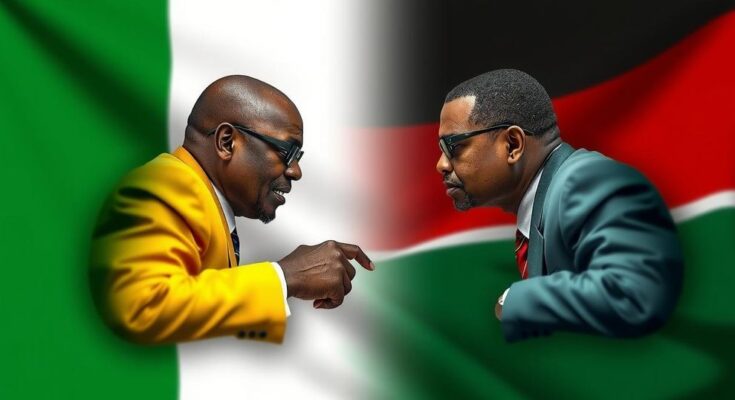Kenya and Uganda are taking the initiative to mediate a dispute between Ethiopia and Somalia regarding Ethiopia’s plan to build a port in Somaliland, a move opposed by Somalia. This mediation arises amid rising tensions that threaten regional stability, with Somalia increasingly aligning with Egypt and Eritrea against Ethiopia. Previous mediation efforts have failed, but hopes remain that continued dialogue can mitigate the discord.
In a significant diplomatic initiative, Kenyan President William Ruto announced that he and Ugandan President Yoweri Museveni will mediate discussions between Ethiopia and Somalia to address an escalating dispute that risks destabilizing the Horn of Africa. The tensions emerged following Ethiopia’s controversial plan to construct a port in Somaliland, a region seeking recognition as an independent state, which has incited strong objections from the Somali government. Notably, Ethiopia has maintained a military presence in Somalia to combat al-Qaeda-linked insurgents, further complicating the situation.
The ongoing dispute has amplified Somalia’s alignment with Egypt and Eritrea, both of which harbor grievances against Ethiopia, particularly concerning its construction of a sizable hydroelectric dam on the Nile. President Ruto emphasized the importance of Somalia’s security in fostering regional stability, which is crucial for improving the business climate and attracting investments.
Despite previous mediation efforts in Turkey yielding no tangible results, Somalia’s Foreign Minister Ahmed Moallim Fiqi remains optimistic about future negotiations, expressing confidence that Turkey’s involvement will prove effective. The office of Somali President Hassan Sheikh Mohamud indicated a meeting took place among the three leaders at the summit, yet did not provide explicit details regarding mediation efforts.
Ethiopian officials have not made any immediate public statements responding to these developments, leaving room for speculation on their position regarding the mediation process initiated by Kenya and Uganda.
This article addresses the ongoing tensions between Somalia and Ethiopia, primarily rooted in Ethiopia’s military presence in Somalia and its recent intentions to develop a port in the breakaway region of Somaliland. Somaliland, which declared independence in 1991 but lacks widespread recognition, is vying for potential acknowledgment as a sovereign state in exchange for facilitating the port’s construction. The conflict’s implications extend beyond bilateral relations, as it has ramifications for regional networks, notably affecting Somalia’s ties with neighboring Egypt and Eritrea, which are both at odds with Ethiopia due to longstanding tensions.
In conclusion, the mediation efforts led by Kenya and Uganda highlight the complexities of the Ethiopia-Somalia dispute, driven by geopolitical interests and the quest for stability in the Horn of Africa. Given the historical context and the failed attempts at resolution in other forums, the outcome of these negotiations remains uncertain. The involvement of multiple regional actors suggests that a collective approach could be essential in addressing the underlying issues and promoting lasting peace in the affected regions.
Original Source: www.hindustantimes.com




